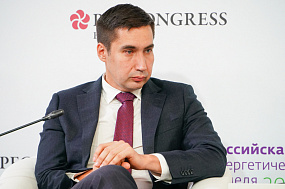Shaping the future while managing a crisis: analysis from the World Energy Council

The World Energy Council has presented the results of a review entitled ‘Shaping the future while managing a crisis: analysis from the World Energy Council’. The study reflects the key problems facing businesses in the energy sector along with the most effective strategies for solving them. Energy development scenarios and mechanisms to adapt to unstable economic conditions – all of these issues will form part of the business programme at the World Energy Congress in St. Petersburg in 2022. The event is organized by the World Energy Council, the Russian National Committee of the World Energy Council and the Roscongress Foundation.
The COVID-19 pandemic is a global crisis affecting billions of people around the world. It is having an immediate impact on energy demand, prices and use. As governments take measures to control the spread of the virus, businesses are adjusting their ways of working while facing operational and financial challenges in response to changing demands and disruptions along value chains.
To pull our community and members together in these challenging times, the World Energy Council is conducting a global energy community Pulse Survey to identify how COVID-19 is impacting organisations around the world, and to facilitate an exchange of best practices and early learning for managing a crisis.
This brief* presents key findings from the survey conducted over 220+ responders across 6 regions & 53 countries focused on perspectives about:
1. LIVING IN THE CRISIS
2. LOOKING AT THE FUTURE
3. LEARNING FROM THE CRISIS
*The survey remains open for continuous tracking of shifting perspectives of the global community. The findings in this document are based on responses received from 28 March to 22 April.
1.LIVING IN THE CRISIS
The energy community is facing major challenges in the COVID-19 crisis:
KEEPING THE LIGHTS ON
96% of energy businesses have been COVID affected, but they have ensured uninterrupted supply to support the needs of business and society
While a quarter of respondents indicate that they face the challenge of temporary closure of their organisations, the majority of energy organisations are maintaining essential system operations and keeping the lights on to provide clean, affordable and reliable energy, especially for the millions of people who lack access.
DEMAND DISRUPTION
45% of respondents are experiencing demand reduction.
Respondents list a decrease in demand, reduced productivity and cash flow issues as the top three areas that have been impacted by the COVID-19 pandemic. Security and stability of operations, and the inability of customers to pay bills are mentioned among top concerns.
PUTTING PEOPLE FIRST
Employee welfare cited as top priority with 64%.
Most organisations are adopting similar measures to manage the crisis, demonstrating remarkable agility and introducing remote work arrangements, implementing rigorous cleaning programmes, establishing crisis teams and leveraging government support schemes. Promoting care and safely of employees is among core priorities.
2.LOOKING TO THE FUTURE
The energy community sees a lasting impact driving a “new normal” for energy systems
RECOVERY FROM A CRISIS
80% of respondents expect a quick recovery for their organisations.
While many respondents from our global community expect return to business-as-usual in less than a month or within 6 months if restriction measures are lifted today, 10% expect a post-pandemic ‘new normal’ for their organisations. More respondents expect a 'new normal' for energy systems (15%) and society (30%).
GO DIGITAL
More than 68% of respondents expect advancing digital transformation to support new ways of working and operations.
While contraction of business is seen as one of the negative outcomes for organisations in the longer-term, some positive developments are expected. Advanced digitalisation to maintain operations with staff working remotely is likely to be a long-term benefit from the crisis response and will affect corporate operational cultures more deeply, while enhanced resilience capabilities should lead to better planning and preparedness.
SPOTLIGHT ON RESILIENCE
Half of respondents expect improved resilience skills and capabilities as a long-term implication for their organisations.
The rapid spread of the COVID-19 virus has highlighted global interdependency and the inter-connectivity of supply chains. It demonstrates an imperative for new and effective collaborative solutions and resilience that goes beyond the technical aspects of energy to whole system resilience, strengthening new strategic buffers, ensuring diversity of mix and/or flexible storage solutions, resilience of people and energy communities.
3.LEARNING FROM THE CRISIS
The energy community sees the importance of following a true mission and prioritising people. It is not clear how long the outbreak will last. Organisations are going through multiple assessments of the risks associated with COVID-19 to implement both long and short term responses to ensure business continuity.
Organisations consider the protection of their most important assets — people, information, cash flow and reputation — as a priority.
Respondents from our global community shared their early learnings from the crisis and their recommendations on how to better manage organisations and teams in a time of uncertainty and constant change.
LEARNING FROM THE CRISIS – the energy community have grouped these reflections in 6 major categories:
1.STICK TO YOUR MISSION NOT PLANS
Clarify your organisation DNA, what is the true mission and what value your organisation brings to employees, clients and society Advance common goals by inspiring a shared vision for the organization. Rethink your operating model, experiment, test and learn quickly what is working and what is not and why.
2.ACT NOW BUT DON’T STOP THINKING ABOUT TOMORROW
Implement a scenarios planning and integrate a future-thinking approach. Consider how lessons from the current crisis can be applied to your organisation in the future. Shift from following a reactive approach to immediate challenges to reinventing your organisation for recovery in a ‘new normal’ future.
3.LEVERAGE DIGITAL TRANSFORMATION
Invest in digital infrastructure and skills to enable better business continuity and provide efficient ways of working. Leverage artificial intelligence and big data analytics capabilities to gain insights and track changes in sentiments. Plan for dealing with increasing cyber threats and data privacy challenges.
4.PRIORITISE THE WELL-BEING OF PEOPLE
Invest in employees’ welfare (physical, emotional, mental, etc.) and well-being. Enhance remote working at scale – help maintain productivity, through flexible hours and other modes. Match human capital to main needs and sustain the value-creating areas of the organization.
5.MAINTAIN REGULAR COMMUNICATION & TRUST
Establish clear communication channels and feedback mechanism with clients, customers and partners. Provide clarity to employees and stakeholders on ongoing changes and priorities. Turn the crisis into an opportunity to re-engage with key stakeholders and clients.
6.DO NOT DO IT ALONE – COLLABORATE
Leverage network effects to learn faster and exchange best practices. Share knowledge with the wider industry, clients and key decision-makers. Crowdsource expert insights, case studies, tools and resources, through online events and engagements.
Annex
IMMEDIATE IMPACT ON ORGANISATIONS
Has your organisation been affected by the COVID-19?

MEASURES
Has your organisation been affected by the COVID-19?
LONG-TERM IMPACTHow long would it take for your organisation to get back to business-as-usual if the measures were lifted immediately?






